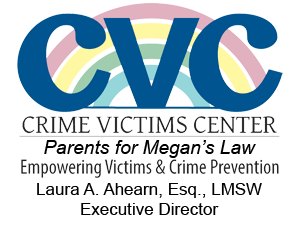Help/Links - Crime Victims Compensation Boards
Every state in the country and several United States territories offer crime victim compensation benefits. There is no federal or national crime victim compensation program for crimes occurring within the U.S. However, the U.S. Department of Justice does operate an expense
reimbursement program for U.S. citizens who are victims of international terrorism outside the U.S..
According to the National Association of Crime Victims Boards, each state's eligibility requirements vary slightly, victims are generally required to:
- Report the crime promptly to law enforcement. Most states have a 72-hour reporting requirement.
- Cooperate in the investigation and prosecution of the crime.
- Be innocent of any criminal activity or misconduct leading to the victim's injury or death.
- File a timely application with the compensation program in the state where the crime occurred, and provide any information requested.
Most states require that the application be filed within 1 year from the date of the crime, but a few states have shorter or longer periods.
Those eligible for crime victim compensation include:
- A crime victim who has been physically injured.
- In most states, a victim who suffers emotional injury as a result of violence or threats, even though no physical injury resulted.
- Family members of a deceased victim, and in some states, any individual who pays for expenses resulting from a victim's injury or death.
Who can apply for Crime Victim Compensation?
In general, innocent victims and non-offending family members of most violent crimes are eligible to apply for crime victim compensation benefits. This includes victims assault, sexual assault, human trafficking, domestic violence, child abuse, drunk driving and other crimes involving personal injury. Families of murder victims may also be eligible for financial help.Personal property losses may also be reimbursed in some states
Are there limits on the assistance available?
Costs related directly to the crime can be reimbursed up to the maximum level in each state.
What costs may be paid?
The following expenses may be covered if they are not paid for from personal medical, auto or another collateral source and if they resulted directly from the crime:
- Medical and hospital care, and dental work to repair injury to teeth.
- Mental health counseling.
- Lost earnings due to crime-related injuries.
- Loss of support for dependents of a deceased victim.
- Funeral and burial expenses.
Check with the specific state where the crime occurred to determine exactly what costs are covered by the program. Many can pay other types of expenses, though these vary from state to state.
Applications can be obtained from your state crime victim compensation program. Most programs now have web sites from which application forms can be downloaded. Check the National Association of Crime Victims Boards for links to each state's program. Applications are also
available from police, prosecutors, or victim service agencies. Many states also have brochures describing their programs.
